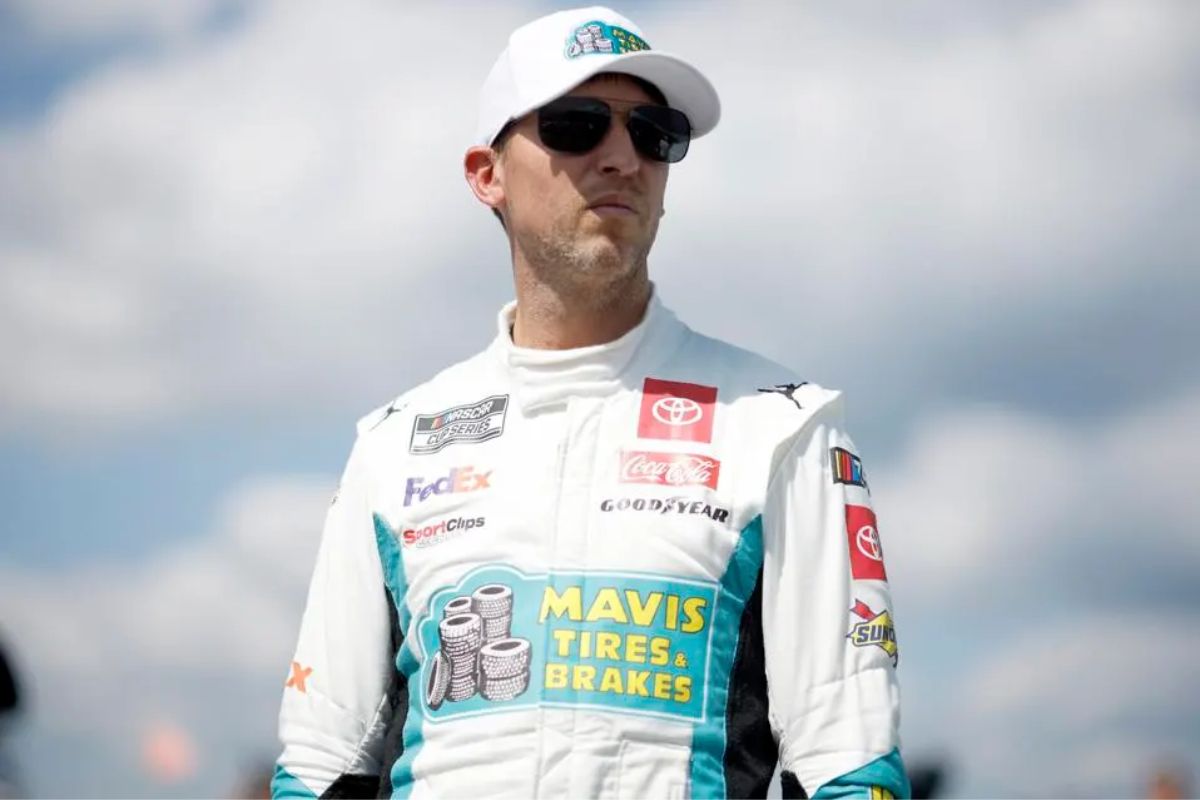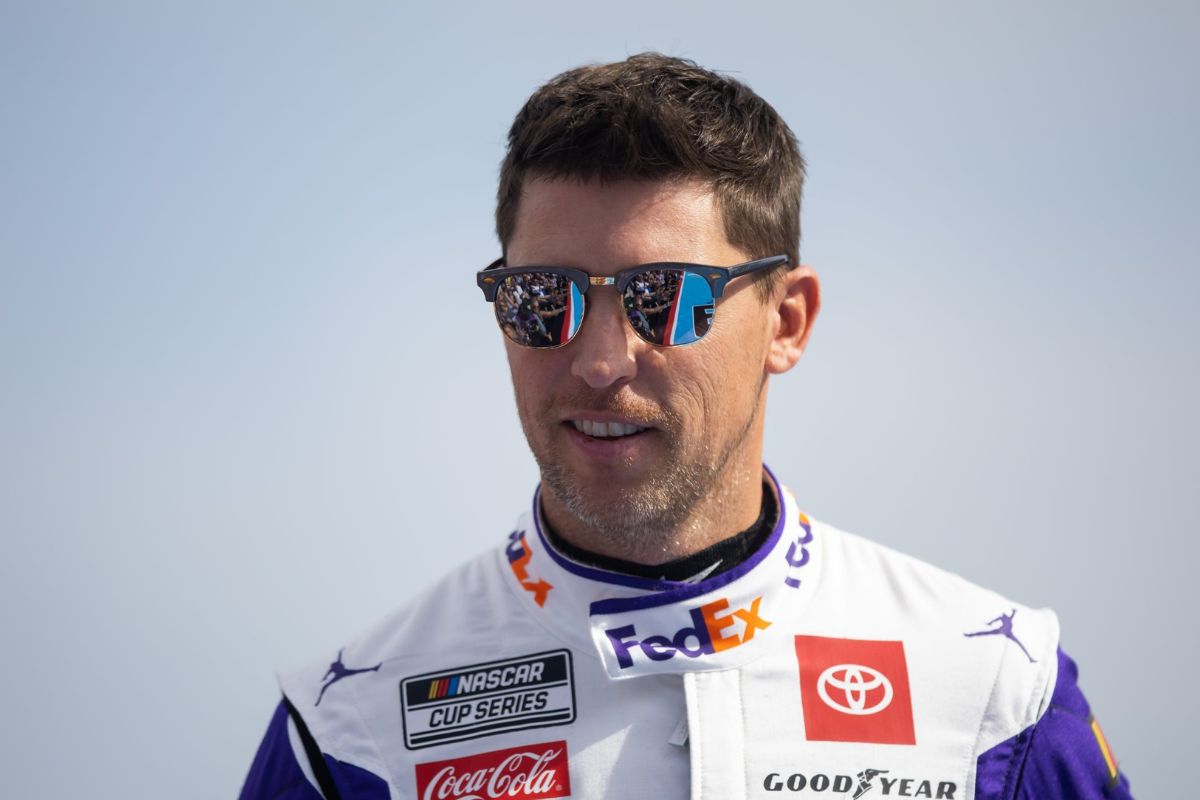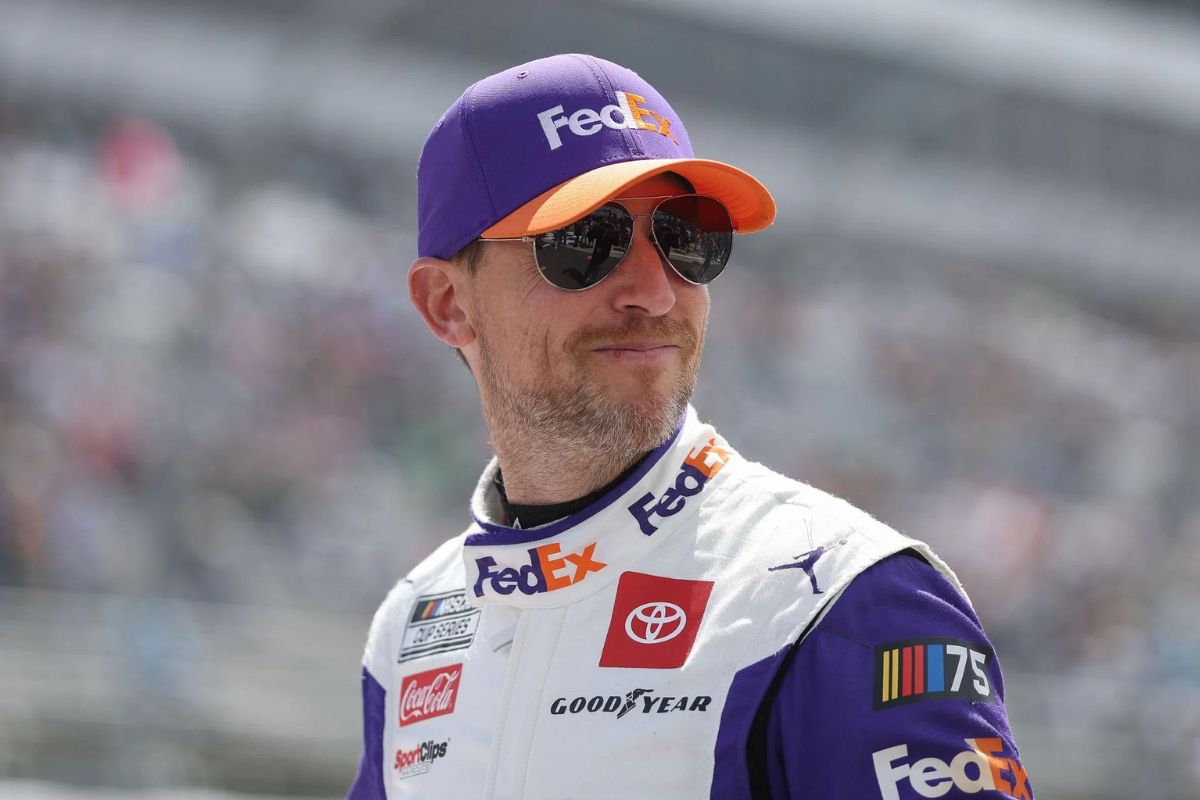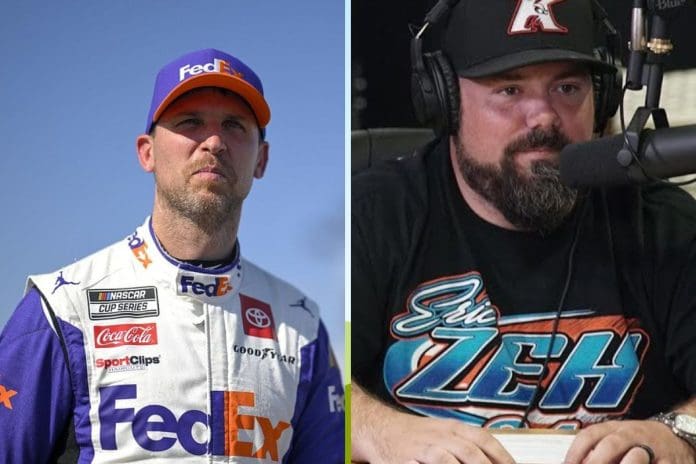Freddie Kraft Hails Denny Hamlin: Freddie Kraft’s characterization of Denny Hamlin as NASCAR’s quintessential villain not only highlights Hamlin’s polarizing nature but also brings to the forefront the intricate role of persona in the world of professional sports. By embracing the role of the antagonist, Hamlin not only fuels the competitive fire within the circuit but also profoundly influences the spectator experience and media portrayal of the sport. This dynamic raises critical questions about the balance between personal brand and sportsmanship, and the extent to which controversy serves as a catalyst for fan engagement and sport evolution.
Key Takeaways
- Freddie Kraft acknowledges Denny Hamlin’s strategic use of psychological warfare to dominate NASCAR.
- Hamlin’s unapologetic criticism of NASCAR and engagement in trash-talking solidify his villain persona.
- The “I beat your favorite driver” tagline exemplifies Hamlin’s provocative interaction with fans and rivals.
- Hamlin’s controversial tactics, like aero-blocking, are defended as essential for competitive advantage, aligning with his villain image.
- His ability to perform under scrutiny and provoke reactions enhances his status as NASCAR’s ultimate villain.
Denny Hamlin: NASCAR’s Ultimate Villain
In NASCAR, Denny Hamlin has emerged as the quintessential villain, skillfully wielding his sharp tongue and unapologetic demeanor to dominate the track and the conversation. His outspoken nature and readiness to engage in verbal spats have positioned him as a polarizing figure in a sport where personality often drives as much attention as performance.
Hamlin’s knack for controversy is not just limited to his racing tactics but extends to his public and media interactions. By openly criticizing NASCAR’s decisions and racing packages, he positions himself as a figure unafraid to challenge the status quo, thereby amplifying his villainous persona. This boldness is a strategic move that not only keeps him relevant in media cycles but also endears him to a segment of fans who appreciate his candor and confrontational style.
Moreover, his “I beat your favorite driver” tagline is a masterstroke in personal branding. It stokes rivalries and keeps the fans engaged, whether they love to hate him or hate to love him. This approach, while divisive, undeniably keeps the spotlight firmly on Hamlin, making every race not just a sporting event but a narrative battlefield.

Denny Hamlin’s Controversial Win at Dover
Denny Hamlin’s recent victory at Dover has once again stirred controversy, highlighting his polarizing presence in NASCAR. This season, Hamlin has demonstrated an uncanny ability to silence his detractors with performance, securing three wins out of eleven starts. Yet, his latest win at Dover was not without its detractors.
Each victory Hamlin notches seemingly deepens the chasm between his supporters and those who oppose him. His gesture of holding up the number one towards the grandstands is symbolic of a competitor who thrives under scrutiny and revels in the adversarial atmosphere. This act, while seen by some as a mere celebration, is interpreted by others as a defiant response to his critics.
Hamlin Named NASCAR’s Top Trash Talker
Freddie Kraft recently highlighted Denny Hamlin’s skill in psychological warfare, naming him NASCAR’s premier trash talker on the DJD Reloaded podcast. Hamlin’s mastery in this area is not just about the words he exchanges but also how he strategically uses his persona to influence perceptions both on and off the racetrack. In an era where most NASCAR drivers tend to be more reserved, Hamlin’s ability to adopt and amplify the role of the antagonist sets him apart.
“Yeah, it’s like I say every week on DBC. Denny’s great, and he’s the king of it right now. He’s feeding into that villain role of where he’s just not really trash-talking other drivers per say. He’s doing a really good job of kind of trolling the fans and then maybe trolling the other drivers.” – hamlin
Kraft pointed out that Hamlin excels in ‘trolling’ both fans and other drivers, a tactic that not only garners attention but also seems to boost his competitive edge. The audible reaction of the audience during driver introductions—often filled with boos and jeers specifically when Hamlin appears—underscores his effectiveness in this role. According to Kraft, this reaction is a reflection of Hamlin’s ability to ‘feed into’ the villain persona he has cultivated.
“The reaction, the boos. You never have to question who comes out of a driver’s intros sometimes it’s because you hear the crowd erupt. Yeah, that’s Denny for sure. I think he’s the king of it right now. I think he feeds into it; that’s why he’s good at it”. -hamlin
His approach is not merely about disturbing the peace but about crafting an identity that can psychologically unsettle opponents while rallying his own focus and resolve. As Kraft suggests, Hamlin’s proactive engagement with this dimension of racing not only defines his character within NASCAR but also exemplifies his strategic prowess, making him the uncontested ‘king’ of mental and verbal gameplay in the sport.

Hamlin’s Controversial Aero-Blocking Technique
While Freddie Kraft praises Denny Hamlin’s psychological tactics, another dimension of his racing strategy—his controversial use of aero-blocking techniques—has recently come under scrutiny. This technique, pivotal in the Next Gen car era, involves the lead car manipulating airflow to disrupt the performance of cars behind it. At Dover, Hamlin’s application of this strategy was evident as he maintained his lead in the critical late laps, cutting off trailing cars from clean airflow.
The debate around aero-blocking isn’t new in NASCAR circles, but its prevalence has escalated with the advent of the Next Gen car. Critics argue that while effective, it detracts from the pure racing skill and sportsmanship expected at NASCAR’s highest levels. This tactic not only impacts the trailing car’s speed but also their tire wear and overall race strategy, leading to a less competitive race environment.
| Impact Area | Description of Effect |
|---|---|
| Trailing Car’s Speed | Significant reduction due to disrupted airflow. |
| Tire Wear | Increased wear from handling issues. |
| Race Strategy | Forced adjustments, often leading to suboptimal results. |
| Viewer Experience | Potential decrease in race competitiveness and excitement. |
Hamlin Defends Aero-Blocking
In defense of his aero-blocking tactics, Hamlin asserts that such strategies are vital for maintaining competitive advantage in races. He emphasizes the necessity of utilizing every available tool to secure victory or defend a position, highlighting that the nature of competitive racing inherently involves such tactics. Hamlin suggests that unless there is a significant difference in car speeds, aero-blocking will remain a fundamental aspect of NASCAR racing.
“You’re not going to keep people from doing what they know is the best way for them to win or protect their position. So it will not go away, no matter what… I think that you’ve got to have a bigger variance in the speeds of cars. That’s the only way we’re going to get rid of this in the long run.”- hamlin
Hamlin’s perspective is rooted in the pragmatism of high-stakes racing. He argues that aero-blocking is not just a choice but an essential strategy in the arsenal of any driver aiming to excel under the current competitive conditions.
As the upcoming Kansas race weekend approaches, where Hamlin will again compete against top contenders like Larson, his stance on aero-blocking will be put to the test. Observers will watch closely to see how these tactics play out on the track, offering a practical demonstration of Hamlin’s assertions and the ongoing debate around the ethics and effectiveness of aero-blocking in NASCAR.

News in Brief: Freddie Kraft Hails Denny Hamlin
Denny Hamlin’s role as the archetypal villain in NASCAR not only enriches the sport’s narrative complexity but also challenges its ethical contours. Through strategic controversies and psychological tactics, Hamlin reshapes fan engagement and discourse within NASCAR.
Such a persona, as highlighted by Freddie Kraft, invites both critique and fascination, ultimately contributing to the dynamic evolution of NASCAR’s cultural and competitive landscape, thereby affirming the significance of villainy in the theater of sports.
Our Reader’s Queries
Q. Is Denny Hamlin a NASCAR driver?
A. Should the championship elude him, Hamlin appears content, acknowledging that his career has soared in the esteemed step, solidifying his position as one of NASCAR’s premier figures in history.
Q. What is Denny Hamlin’s real name?
A. James Dennis Alan Hamlin, born on November 18, 1980, is a prominent American stock car racing driver and team owner. He’s a stalwart competitor in the NASCAR Cup Series, steering the No. 11 Toyota Camry XSE under the banner of Joe Gibbs Racing. Additionally, Hamlin holds the role of co-owner and operator at 23XI Racing, a venture he shares with basketball legend Michael Jordan.
Q. Who is the number 11 car in NASCAR?
A. Behind the wheel of the No. 11 Toyota for Joe Gibbs Racing, you’ll find Denny Hamlin navigating the NASCAR Cup Series circuits. Beyond his racing duties, Hamlin also holds the unique distinction of co-owning 23XI Racing alongside NBA icon Michael Jordan.
ALSO READ: Denny Hamlin Vs. Rusty Wallace’s Legacy: Kenny Wallace’s Debate


